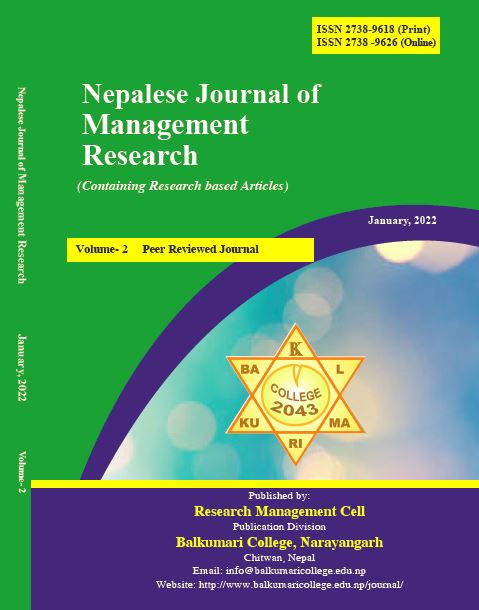Impact of Human Resource Management Practices on Organizational Citizenship Behavior in Nepalese Financial Institutions
DOI:
https://doi.org/10.3126/njmgtres.v2i1.48259Keywords:
Employees, Financial institutions, Human resources, HRM practices, Organizational citizenship behaviorAbstract
Human resource management (HRM) practices refer to all the activities necessary for manpower management of the organization. It is the process of acquisition, development, utilization, and maintenance of human resources in the organization for its long-term sustainability. The emergence of a liberal economy and globalization bring a rapid change in HRM practices and its impact on organizational citizenship behavior for improving organizational competitive strengths. At present human resources are said to be the human capital that can play a significant role in improving competitive advantage and sustaining business activities of all organizations including financial institutions. The purpose of this study is to examine the impact of HRM practices on the organizational citizenship behavior of employees working in Nepal's financial institutions, which include commercial banks, development banks, finance companies, and insurance companies. In this study, HRM practices involve four variables consisting of training and development, performance appraisal, compensation system and employee participation. For the study, the opinions of 405 employees of financial institutions working at managerial, officer and assistant levels are taken into account. Pearson Correlation is used to determine the relationship between HRM practices and organizational citizenship behavior, whereas multiple regression is used to examine the impact of HRM practices on organizational citizenship behavior. The findings reveal that HRM practices have a positive association and also have an impact on the organizational citizenship behavior of Nepalese financial institutions.
Downloads
Downloads
Published
How to Cite
Issue
Section
License
The journal allows the author to hold the copyright and retain publishing rights without restrictions.

